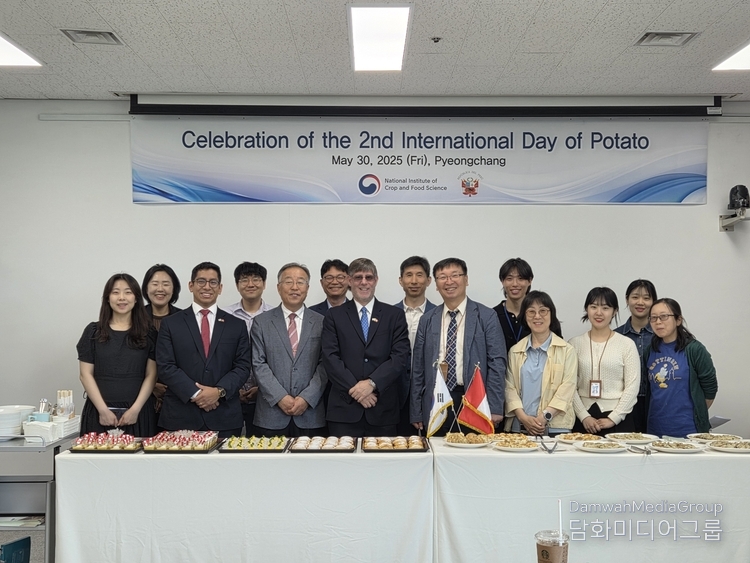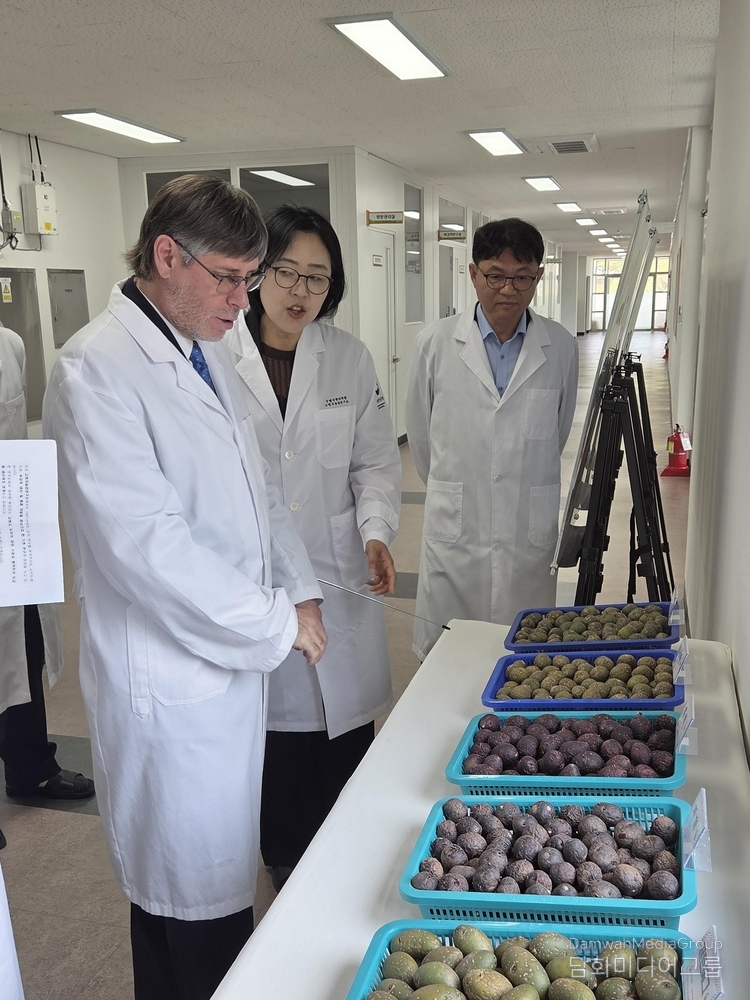By Diplomacy Journal Lee Kap-soo
The Highland Agriculture Research Institute (HARI) and the Peruvian Embassy in the Republic of Korea celebrated the International Potato Day on May 30, established in the United Nations General Assembly in 2023, at the Institute’s headquarters in Pyeongchang, Gangwon Province.
A working visit was organized to HARI’s modern facilities, which has nearly 100 scientists and researchers dedicated to the study of seeds, viruses, diseases, crops and harvests of potatoes, as part of its mission to develop and distribute potato and high-income crop varieties; and develop utilization enhancing technologies such as hydroponic crops; as well as foundational technologies for eco-friendly highland agriculture.

During the event, a potato-based tasting of popular snacks in both countries was also offered, where diplomats, researchers and scientists were able to try delicious Peruvian food like “papa a la huancaína”, “causa”, and “empanadas”.
This celebration allowed Peru and Korea to strengthen ties regarding potato research, explore possibilities for scientific and academic exchange, and promote the benefits of potato consumption. Paul Fernando Duclos Parodi, the Ambassador of Peru in Korea, stated its commitment to continue promoting this valuable product as a bridge of understanding and cooperation between our nations.

Legacy of Peruvian potatoes for global food and Peruvian culture
The potato, more than just a food, is a cultural legacy that connects our histories and opens new possibilities for the future. In Peru, potatoes are celebrated for their incredible variety and vibrant colors, with over 4,000 known varieties.
They are a staple food in Peruvian cuisine, used in countless dishes, and hold a significant place in Peruvian history, including innovative techniques for preserving potatoes, such as chuño (freeze-dried potatoes) and tocosh (fermented potatoes).
Moreover, universities and agricultural institutions from both countries have been focus on research projects regarding the biodiversity and resilience of the potato, contributing to the development of sustainable solutions in the face of climate change and food security challenges.
Peru is also home to the headquarters of the International Potato Center (CIP), a leading global institution dedicated to potato research. CIP delivers innovative science-based solutions to enhance access to affordable nutritious food, foster inclusive sustainable business and employment growth, and drive the climate resilience of root and tuber agri-food systems.
Headquartered in Lima, the capital of Peru, CIP has a research presence in more than 20 countries in Africa, Asia and Latin America.







